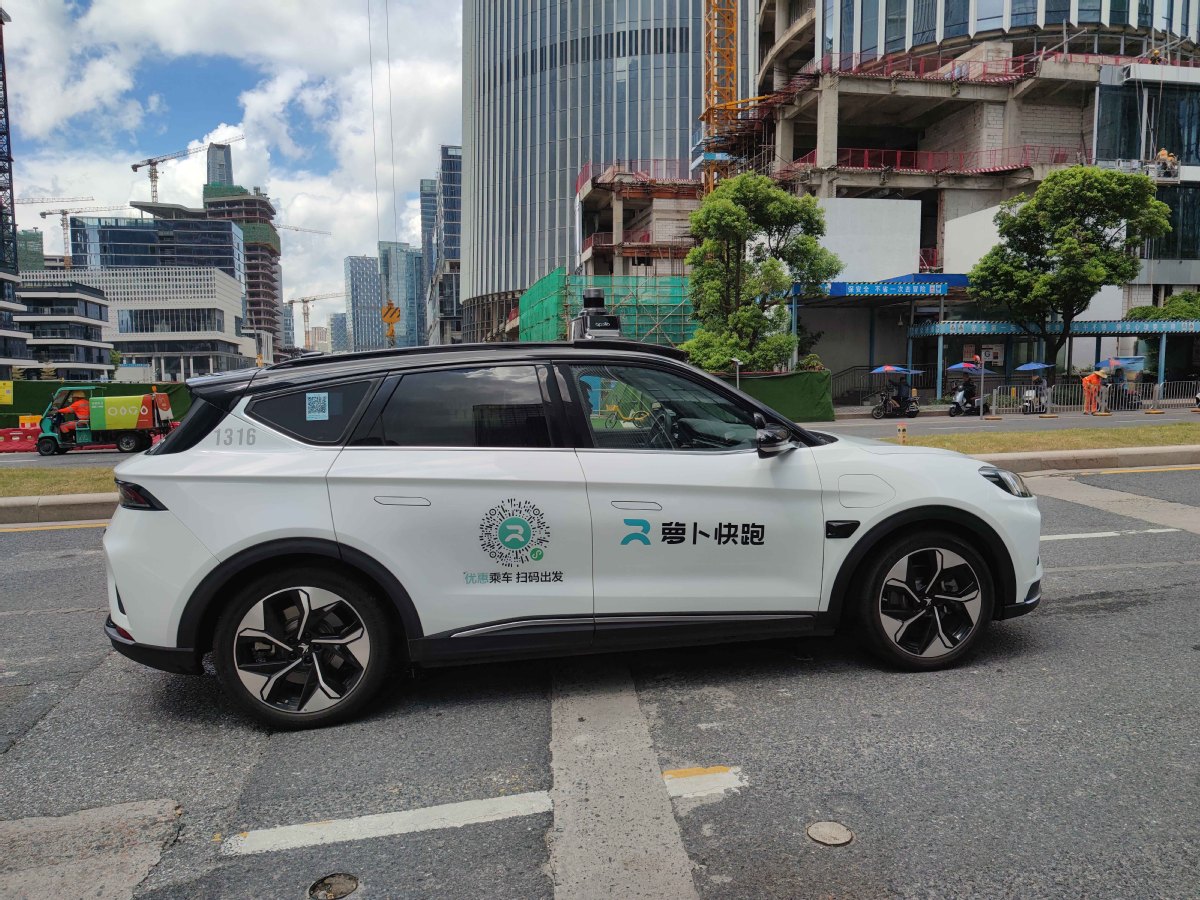
The Guangzhou People's Congress has framed draft rules to further expand the operation of autonomous taxis and buses in the capital city of Guangdong province, aiming to support the development of intelligent transportation in the future.
According to the draft Regulations on the Innovative Development of Intelligent Internet Connection Vehicles in Guangzhou, the city will support the application of such vehicles in transportation hubs, including airports, ports and highways, as well as urban public transportation, taxis and related travel services in the following years.
The legislative authority is soliciting public opinion on the draft, in a bid to support autonomous driving in the southern metropolis, which is a transport hub of the Chinese mainland.
Meanwhile, Guangzhou will gradually open up more roads for the mixed operation of autonomous and human driving throughout the city, according to the draft regulation.
"This will not only help improve transportation efficiency and service quality, but also lay the foundation for the commercialization and popularization of intelligent connected vehicles in the city," said the draft regulation, which was published on the official website of the Guangzhou People's Congress on Thursday.
In terms of safety and responsibility, the draft regulation clarifies the safety standards and the responsibility determination mechanism for intelligent connected vehicles, requiring relevant enterprises to ensure operational safety of vehicles, and conduct timely technical analysis and investigation in case of accidents.
In addition, data management has also been put on the agenda, and companies have been asked to continuously and completely record as well as store vehicle operation data for accident analysis and liability tracing when needed, it said.
In terms of infrastructure, the draft regulation proposes the planning and construction of integrated vehicle, highway and cloud computing infrastructure, including intelligent roadside facilities, service management platforms, communication networks and map management, which are key in supporting the efficient operation of intelligent connected vehicles.
The draft rules encourage enterprises, universities and research institutions to conduct research and innovation in key core technologies, such as automotive grade chips, intelligent sensors and autonomous driving algorithms, strengthening the protection of intellectual property rights in the field of intelligent connected vehicles, since technological research and innovation are the driving force behind industrial development.
Guangzhou, known as the southern gateway of the country, is expected to become the first city to legislate in supporting the self-driving industry in Guangdong province once the draft regulation becomes local rules.
Li Xiaojun, Party secretary and chairman of Guangzhou Public Transport Group Co Ltd, said his company is actively exploring new paths of transformation and upgrading, and the draft regulation will help public transportation enterprises further accelerate the development of the autonomous driving industry.
Li said his company will take advantage of the opportunities of public transportation and electrification to begin the application process for new energy vehicles and in constructing and operating charging stations, to explore a multi-format new energy transportation industry around charging, energy storage and power battery utilization, creating a comprehensive energy solution with Guangzhou's public transportation characteristics in the following months.
According to official statistics, Guangzhou already has self-driving buses and cabs, including 50 buses that are currently operational. The city has opened 10 autonomous driving bus routes in the city's Huangpu and Haizhu districts.
More self-driving vehicles will be put into operation and more autonomous driving bus routes will be opened in the city, which has a population of more than 17 million.
Meanwhile, robotaxis from Baidu's Apollo Go were officially put into use in Guangzhou last month after the company started operations in Wuhan, capital of Central China's Hubei province.
At the forefront of China's reform and opening-up, Guangzhou is busy carrying out tests of autonomous vehicles.
Authorities said the city has opened 827 test roads for autonomous driving, including the entire Nansha Port Expressway and the first phase of the Conghua-Huangpu Expressway, covering a one-way length of about 1,666 kilometers, involving six administrative regions and providing a wide range of test scenarios for autonomous vehicles.

